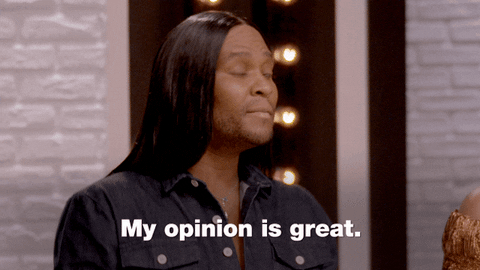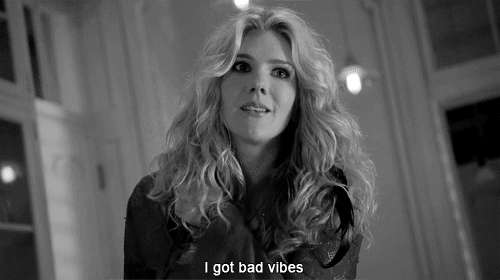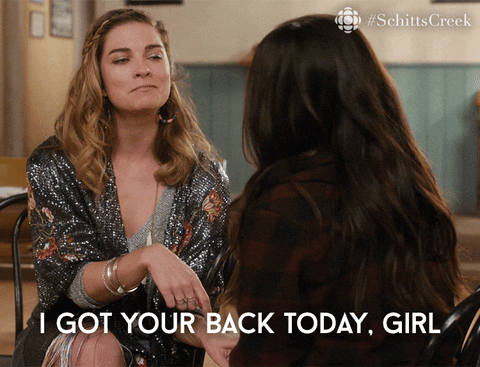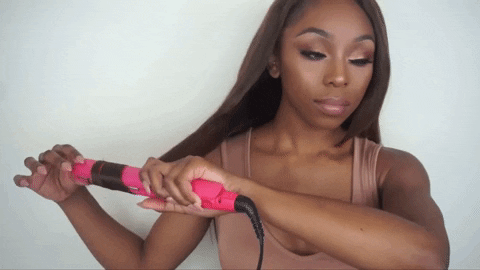
There are people in my family who are worry addicts in denial. If they have a sore throat, they talk about the possibility of it being cancer. If they are short on cash for rent, they already see themselves out on the street. If their significant other doesn't pick up before the third ring, they've resigned that they are being cheated on. Ugh. These people are extremely exhausting to be around, so I can only imagine what it's like to actually be them. Oh, wait. I've got a clue.
It's listed right there in the definition of worry—"to torment oneself with or suffer from disturbing thoughts; fret." Did you catch it? When you make the choice to worry—because it is always a decision; it's not something that "just happens"—you have chosen to torment yourself. What in the world?
If, despite what the dictionary says, you don't believe that "to worry" is an ultimate form of self-torment, check out some points from WebMD's "How Worrying Affects the Body" article. Worrying has a way of affecting your appetite, your sleep patterns, your moods, and your relationships. Some physical results of worrying include headaches, nausea, muscle tension, the inability to concentrate, and bouts of anxiety. In a nutshell, worrying can make you feel like crap, stress out the people around you, and ultimately paralyze you with doubt, fear, and angst.
And here's the thing—once you're done worrying, not only is the thing that you're worrying about still lingering around, but your worrying has probably made it that much worse. Basically, worrying does what the late newspaper columnist Emma Bombeck once said—"Worry is like a rocking chair. It gives you something to do but never gets you anywhere."
Another thing that I've concluded about worry is a lot of people who do it are in denial about something else that it reveals, that they are a control freak. Think about it. When it comes to most of the things that we worry about, aren't they usually connected to things that we want to control, but are totally out of our hands?
Y'all, the more that I unpack this worry thing, the more I know that if there's one habit that all of us must rid ourselves of, it's worry. And chile, there's no time like the present to do just that!
Stop Creating So Many Hypothetical Storylines

I always think it's funny that, when topics like "drama queen" come up, automatically some folks get triggered. It really shouldn't bother any of us to hear the rundown of what a drama queen is (or does) unless it's a bit of a "hit dog will holler" kind of thing. Even then, if you see yourself as being one, there's no time like the present to make a change—if you want to, that is.
Anyway, although the typical definitions of a drama queen include things like mood swings, constant complaining, throwing temper tantrums, being a constant attention-seeker, and always stirring up trouble, I personally think that a totally underrated sign is someone who is always making mountains out of molehills. You know the kind—their man calls to say, "We need to talk" and, before he can call back, they've already decided that not only has he cheated, but he probably has a baby on the other side of town. Or, there's an impromptu staff meeting at work, and they walk into it in tears because they can already imagine themselves living in a cardboard box.
Your day-to-day life already comes with enough plots, twists, and characters. Significantly reduce your chances of becoming a worry wart by refusing to feed off of hypothetical storylines that your imagination is trying to freak you out with.
Do the Best That You Can. Consistently So.

Something that is mad freeing is knowing that, at the end of the day, you did the absolute best that you could. Not in some categories of your life—every single one of them. I can personally attest to this because, when I know that I've let the ball drop on something, it is a whole lot easier to get nervous, anxious, or worried than if I did all that I could. An example of this is a time when my rent got lost in the mail.
My landlord was telling me that if it wasn't found, I'd have to pay it again. Whatever. I had proof of payment. It was gonna be what it was gonna be. But back in the day, when I was an impulse shopper and writing checks all over the place, sometimes rent time would roll around and I'd be freaking out because I didn't know if I truly had enough in my account or not.
See the difference? When you know that you've done what is within your control, what else can you really do? It's when you have to face that you've been back-steppin' that worry is able to creep in. The good thing about this particular point is that it's a reminder that a lot of what we worry about ceases to be an issue if we simply operate in excellence and leave the rest to the Universe to figure out. (The check showed up, by the way. In case you were wondering.)
Avoid the Need to Get a Dozen Different Opinions

This is a gem of a point because, if you're someone who has wired yourself to have to speak with a billion people before making a decision, not only does that mean you don't trust yourself as much as you should, but it also explains why you may be prone to worrying a lot more than what is needed. Case in point. I recently found out that one of my main writing gigs was dissolving its company. When I shared this news with someone, they began to panic, seemingly on my behalf. "What are you going to do about your bills?", "Do you think it's time to get a full-time job?", "How can you handle this type of uncertainty?" Goodness, girl. I was actually doing just fine before I brought you into the mix. Lord.
When you're going through a challenge or trial, it's natural and, to a certain degree, even wise, to get another person's insight. Just make sure that you source out the kind of individual who will bring the kind of perspective that will make matters better, not worse; someone who will help to make things clearer, not more confusing. Oh, and try and keep the number of individuals that you consult with down to a minimum.
The more voices you hear, the harder it will be to listen to your own. And, the easier it will be to find more stuff to worry about—thanks (but no thanks) to all of the "extra" that they will bring into your psyche.
Stay Away from Negative Energy and People

On this site, we tend to talk about toxicity quite a bit—toxic family, toxic friends, toxic significant others…you name it. Well, a surefire sign that someone is a toxic individual is if they are negative most of the time. Negative people are the ones who always think that things are too good to be true.
Not only that but they blow small things totally out of proportion; they dwell on the bad circumstances in life; they thrive off of gossip; they tend to be self-deprecating; fear is always consuming them; they are stagnant because they rarely take risks; their moods are always leaning on the side of pessimism; they don't know how to forgive themselves or other people; they are chronic complainers; they dwell on the past—geeze. I could go on and on, but I don't want you to let the negative energy of even exploring all of this bring you down.
The interesting thing about worry, as it directly relates to negative people, is that negativity is what fuels them. And, fascinatingly enough, a lot of negative folks remain on the "glass half empty" side of life because negativity makes them, well, lazy. They would rather just assume that nothing is going to go right than worry about it or try and make things better.
This means that negative people will not only feed seeds of worry and doubt, but if you stick around them long enough, you can transition from worrying to not caring about what once concerned you at all. And rarely is apathy ever beneficial or good. There is scientific evidence to support that negativity is not only really bad for your health, it's mad contagious too. If you want to quit worrying so much, but you're always around negative energy and people, yeah, good luck with that.
It's pretty much like trying to avoid the flu when you share a bed with someone who's got it. It's not impossible but at the same time, it's pretty probable that you'll come down with it. Eventually.
Think of the Worst Case Scenario. Then Let It Go.

No matter what you're going through in life, there is always going to be a worst-case scenario. But, as they say, 85 percent of what we worry about actually never happens. Still, I think a part of the reason why worrying wears a lot of us out is because we're expending so much time, effort, and energy trying to talk ourselves out of the worst-case scenario rather than considering and then letting it go. A good example of this that comes to mind is when I was a little girl, I actually missed a flight that ended up going down. As a child, I never gave it much thought. Oh, but as an adult, I have. I travel, but flying isn't my absolute favorite thing in the world to do. It's because I know that I could've crashed on one.
One time, while on the way to Alaska, one of the little planes that I was on felt like a piece of paper in a tornado. I hated every moment of it. But the man next to me looked at me and said, "If it's your time, it's your time. What can you do about it now? Calm down." Ever since then, I've applied that way of thinking to just about every issue that tempts me to worry. I think about the worst thing that could happen, I make peace with it, and then I let the thought go.
It might seem weird, but once I'm in the head space of "Whatever it is, I can face it because God's got me," there is a sense of calm and tranquility that makes me almost fearless. Hey, don't knock it until you've tried it.
Take Things One Day At a Time

Remember how I said earlier that most worriers have issues with control? I meant it. Think about the last thing you worried about. Did it have something to do with what was going on in the now or something that could possibly happen tomorrow, next week, or even six months later? There is a Scripture in the Bible that says, "Therefore do not worry about tomorrow, for tomorrow will worry about its own things. Sufficient for the day is its own trouble." (Matthew 6:34—NKJV) No matter what your personal spiritual beliefs may be, you've gotta admit that this is a real pearl of wisdom in these words.
One problem with worry is that it causes you to take the focus off of what is right in front of you. Instead, you tend to put your energy and emotions into something that may or may not happen in the future. As a result, it robs you of time and the ability to handle what's before you with excellence. Matthew 6:34 is right. Tomorrow will be here soon enough, and you can best believe that it will come with its own set of concerns. But since tomorrow isn't promised, why not concentrate on what you can be sure of? Right here and right now.
Quit Overwhelming Yourself

There's someone I know who's always telling multiple people all of their business. Then, once their business gets out, they're all stressed out because they don't know who leaked it. SMDH. This is what feeling overwhelmed can be like—you feel somewhat burned out, if not completely overcome, all because you've taken on so many things that you don't really know how to trace your own steps so that you can complete everything. And when you've got tons that need to be done, of course, it's going to cause you to worry.
I know a lot of us ladies think that we're the masters of multitasking, but there is plenty of research that proves otherwise. While we might do "okay" with trying to do five things at once, we'd be much better off doing one thing at a time. It will keep our stress levels down, so that we can concentrate on doing each task with excellence. And, as a wonderful bonus, we can learn the art of saying "no" more often.
Doing one thing at a time is just one more way to stop worrying as much as you probably do.
RELAX

No one is able to relax when they are worried all of the time. How do I know this to be true? Because some antonyms for worry include calm, trust, sureness, confidence, reassurance, contentment, and joy. In this world, we all are going to experience highs and lows. That's a part of life. But as the late Rep. Elijah Cummings once said that he always asked his children, it's important that when "the lows" come that we ask, not why is this happening to us, but why is it happening for us?
By taking on the second approach to our circumstances, we can settle our spirits down more. Then, by doing something along the lines of meditation, yoga, prayer, sleeping, or even just chilling out on the couch and watching something that will get our minds off of what's trying to stress us out, we'll be better equipped to take it on.
Worry hates it when we're relaxed because it knows that it can't really get to us whenever we do. Bottom line—do what you can, release the rest. In a nutshell, that's the key to training yourself to stop worrying so freakin' much.
Let’s make things inbox official! Sign up for the xoNecole newsletter for love, wellness, career, and exclusive content delivered straight to your inbox.
Feature image by Shutterstock
Originally published on November 9, 2019
This Is How To Keep 'Holiday Season Stress' From Infecting Your Relationship
Hmph. Maybe it’s just me, but it seems like there is something really weird happening in the fall season air (because winter doesn’t officially begin until December 21) that cuddle season is in full swing while break-up season is as well. In fact, did you know that break-ups are so popular during the holiday season that December 11 is deemed Break-Up Day?
The reasons why relationships shift around this time vary; however, I did both roll my eyes and chuckle when I read that a very popular one is because it’s an easy way to get out of getting one’s significant other a Christmas present. SMDH.
Anyway, I personally think that the less shallow folks out here may contemplate calling things “quits” or they at least distance themselves a bit from their partner (and what I’m referring to is serious relationships) due to all of the stress and strain that oftentimes comes with the holidays whether it be financial, familial, due to their tight schedules or something else.
Listen, I would hate for you and your man to miss the fun and happiness of experiencing this time of year, all because you are so overwhelmed or irritated that you can’t really enjoy it. That’s why I have a few practical tips for how to avoid allowing the typical holiday season stress from INFECTING your relationship.
Manage Your Expectations
 Giphy
GiphyUnmanaged expectations. If there is a main reason why the holiday season tends to be so stress-filled for so many people, I’d bet good money that this is the cause. And when you’re in a long-term relationship, expectations can manifest themselves in all sorts of cryptic and/or unexpected ways. You might have relatives who assume that you are going to be with them for Thanksgiving or Christmas when you have other plans in mind. You might be thinking that you are going to spend one amount for presents while your man is thinking something totally different. When it comes to scheduling, your signals may be crossed.
And you know what? To all of these scenarios, this is where clear and consistent communication come in. Don’t assume anything. Don’t dictate anything either. From now until New Year’s, mutually decide to check in once a week, just to make sure that you are both on the same page as it relates to the holidays and what you both are thinking will come along with it. The less blindsided you both feel, the less stressed out you will be. Trust me on this.
Set (and Keep) a Budget
 Giphy
GiphyOkay, so I read that last year, 36 percent of Americans incurred some type of holiday-related debt. Hmph. Last year, there was still some sense of normalcy in this country, chile, so I can only imagine what finances are gonna look like over the next several weeks. That said, since I don’t know a lot of people who don’t find being broke stressful, make sure that you and your bae set a budget and then stick to it this year — no ifs, ands or buts.
Because really, y’all — it doesn’t make sense to deplete savings and/or max out credit cards for a few days of giggles only to be damn near losing your mind because you don’t know how to make ends meet come Dr. Martin Luther King, Jr. Day.
And by the way, this tip doesn’t just speak to things like food and gifts; I also mean travel. If it doesn’t make a ton of sense (or cents) to be all over the place this year — DON’T BE.
Keep Matthew 5:37 at the Forefront
 Giphy
GiphyIf off the top of your head, you don’t know what Matthew 5:37 says, no worries, here ya go: “But let your ‘Yes’ be ‘Yes,’ and your ‘No,’ ‘No.’ For whatever is more than these is from the evil one.” That verse right there? Oh, it’s a boundaries lifesaver! I say that because do you see “maybe” or “I’ll think about it” in there? Nope. LOL. It says that you should tell people “yes” or “no” and leave it at that — and that complements Anne Lamott’s quote, “’No’ is a complete sentence” impeccably well. Yeah, you’ve got to remember that anything beyond a yes or no to a request is privileged information; you don’t owe anyone details or an explanation.
Besides, if you are really honest with yourself, when someone asks you something and you give a “Umm, let me think about it” kind of reply, more times than not, you already know what your answer is going to be — so why not let you both off of the hook? Give your response. Commit to that. And let everyone (including yourself) get on with their lives and schedules.
I promise you that when it comes to those holiday parties, you are pissing more folks off by not RSVP’ing or doing so and not showing up than just saying, “Thank you but not this year” off the rip.
Remember That Your Personal Space Is Privilege Not a Right
 Giphy
GiphyA friend of mine recently bought a new house and invited me over to come see it. He’s a single man with no children, so as I was taking in all of the space that he had, especially as I walked through his finished basement, I joked about relatives coming to live with him. “Hell no” and “absolutely not” were pretty much his immediate responses as he went on to say that some folks even had the nerve to be offended when he told them that he had no intentions on taking DNA in.
Ain’t it wild how people think that your stuff is their right? And yes, that brings me to my next point. Your home is your sanctuary space. If you want to host folks this year — cool. If not, ALSO COOL. Please don’t let folks (family included) guilt you into how they want you to act or even into what they would do if the shoe was on the other foot. You are not them — and as one of my favorite quotes states, “If two people were exactly alike, one of them would be unnecessary.” (A man by the name Larry Dixon said that.)
Hell, my friends? They know that I am good for sending them random things that they need or even want all throughout the year. Coming over to hang out at my pace, though. Uh-uh. Chalk it up to being a card-carrying member of the ambivert club yet I like keeping my living space personal — and I sleep like a baby, each and every night, for feeling that way.
Always remember that your space, your time, your resources, your energy and shoot, yourself period (including your relationship), are all things that are your own. You get to choose how, when and why you want to share them. The holiday season is certainly no exception.
Cultivate Some “You Two Only” Traditions
 Giphy
GiphyIt’s not uncommon for some couples to hit me up after the holiday season to “detox.” Sometimes it’s due to the financial drama (and sometimes trauma) that they experienced. Sometimes it’s because they allowed their relatives (especially in-laws) to get more into their personal business than they should’ve. More than anything, though, it tends to be because they didn’t get enough quality time together and so ended up feeling “disconnected.”
Please don’t let that happen. Listen, I’m not even a holidays kind of woman and yet, I will absolutely sit myself down with some hot chocolate and chocolate chip cookies to enjoy a Hallmark holiday film or two. Aside from the fact that most of them are lighthearted and sweet, I also like that they usually focus on couples loving on each other amidst all of the holiday beauty and ambiance — which is something that all couples should set aside some time to do.
Maybe it’s a vacation. Maybe it’s a staycation. Or maybe it’s my personal favorite, A SEXCATION. Whether it’s for a few days, the weekend or even overnight — don’t you let the holidays go by without setting aside time for you and your man to celebrate one another. Don’t you dare (check out “Are You Ready To Have Some Very Merry 'Christmas Sex'?”).
GET. SOME. REST.
 Giphy
GiphyI once read that 8 out of 10 people get stressed out over the holidays and 3 out of 10 lose sleep during to it — and when you’re stress-filled and sleep-deprived, that can absolutely lead to hypersensitivity, making mountains out of molehills and even not being in the mood for sex.
Your relationship can’t afford to go through any of this, so definitely make sure to prioritize rest. I don’t care how unrealistic it might seem during this time, sleep should never be seen as a luxury; it will always and forever be a great necessity.
That said, try to get no less than six hours of shut-eye in (check out “6 Fascinating Ways Sex And Sleep Definitely Go Hand In Hand”) and even ask your bae to take a nap with you sometimes (check out “Wanna Have Some Next-Level Sex? Take A Nap, Sis.”). Not only will sleep help to restore your mind, body and spirit but, when it’s with your partner, it’s an act of intimacy that can make you both feel super connected, even in the midst of what might feel like chaos.
___
Holiday season stress is real. Still, never give it the permission or power to throw your relationship off. Put you and your man first and let the holidays be what they are gonna be, chile.
Let’s make things inbox official! Sign up for the xoNecole newsletter for love, wellness, career, and exclusive content delivered straight to your inbox.
Featured image by Shutterstock
It’s probably been over the past 2-3 years that I’ve become hyper-focused when it comes to applying certain chemical exfoliants known as acids to my skin. Personally, I’ve come to really appreciate ones like mandelic acid and hyaluronic acid because they have a way of softening my skin, brightening it up and really evening out my complexion overall.
In fact, on my skin, they have been so effective that they have caused me to wonder what would happen if I applied some of them to my hair too — and boy, was it an experiment that paid off big time!
If, while on your continual journey to get the best out of your own tresses, you’d like to learn how to get them healthier than it’s ever been, I’ve got seven acids that are typically known for skin use that can be just as beneficial to your hair as well.
1. Salicylic Acid
When it comes to your skin, salicylic acid is beta-hydroxy acid that is great for your skin if you’re looking for something that will exfoliate it, clear out your pores and dissolve dead skin cells. In fact, this is why it’s an acid that is quite popular when it comes to treating acne.
Your hair will enjoy salicylic acid because, if you’re looking to remove product build-up, you want to soothe an itchy or irritated scalp or you’ve got some dandruff flakes that are totally driving you up the wall, salicylic acid has the ability to treat all of this. Either purchasing a shampoo that contains this ingredient or adding it to your favorite scalp scrub is probably the most effective way to get the most out of it.
Just make sure that if your scalp is sensitive or dry that you approach with caution. In these instances, it could end up irritating your scalp more than helping it out, so use a very little bit in the beginning to make sure that it vibes with you.
2. Lactic Acid
Lactic acid is an alpha hydroxy acid that can help to even out your skin tone as well as slow down the signs of aging. The properties in it help to do this by reducing hyperpigmentation and boosting collagen production in your skin as well as keeping it hydrated.
Why is it great for your locks? For one thing, lactic acid is considered to be a humectant. This means that it pulls water from the air so that your hair is able to remain moisturized.
Another thing that makes it a winner is the fact that lactic acid breaks down dead skin cells on your scalp (so that your hair follicles are able to flourish), it can help to soften and detangle your hair (making it a helpful addition on your wash days) and it also helps to protect your tresses from heat styling tools and UV damage. Applying a hair rinse that’s made up of part lactic acid and part water can work wonderfully (so long as you apply it once a month, tops; more than that might be too “intense” for your hair strands).
3. Glycolic Acid
Glycolic acid is a water-soluble alpha hydroxy acid that is actually made from sugar. Your skin will adore it because it smooths the appearance of fine lines and wrinkles, improves the texture of your skin, gently exfoliates, clears your pores and brightens up your complexion overall.
The reasons why you should consider this acid for your hair is because it helps to keep your scalp youthful (and yes, there is such a thing; check out “Your Scalp Ages Six Times Faster Than Your Face. Why It Matters.”), removes excess sebum (that could be clogging up your hair follicles) and it helps to keep your hair moisturized. Your best bet here is to make it a part of your pre-shampooing ritual.
4. Succinic Acid
Succinic acid is an acid that is made from sugar cane and contains antimicrobial and anti-inflammatory properties. Although it doesn’t exactly exfoliate (like many of these other acids do), it can still be beneficial to your skin when it comes to reducing the kind of irritation that is associated with eczema, decreasing the bacteria that leads to breakouts and keeping your skin pretty hydrated.
As far as your hair goes, this is an acid that is worth trying out because it helps to balance the sebum that is on your scalp, remove dead skin and product build-up that can irritate your scalp and clog your hair follicles and, succinic acid is also beneficial when it comes to reducing dandruff and helping to prevent hair loss. Most people tend to apply this as a serum.
5. Hyaluronic Acid
I’ve officially sung the praises of hyaluronic acid on this platform before. One example is via the article, “Why Your Skin, Hair, And Nails Need Hyaluronic Acid Like...Yesterday.” On the skin tip, hyaluronic acid is great because it deeply hydrates your skin, contains anti-aging properties and can even bring relief to vaginal (including vulvar) dryness.
Your hair will adore this particular acid because it aids moisture to it (including your hair follicles), will help to improve your hair’s texture and it also soothes scalp dryness, nurtures the cuticles of your tresses and decreases frizz. Using a serum rich in this acid as a pre-poo or as a leave-in conditioner is recommended.
6. Azelaic Acid
If you’ve never heard of azelaic acid before, this is your lucky day. It’s a dicarboxylic acid that, when it comes to skincare (and hair care) products, is usually synthetic. Anyway, if you are looking for a way to reduce inflammation, even skin tone after a breakout or if you want to use an exfoliant that will improve the texture of your skin overtime, you might want to give this acid a shot.
This one makes the list as far as your hair is concerned because, if achieving more inches is your current focus, azelaic acid might come in handy. That’s because it is able to strengthen your hair, thicken your strands and also stimulate hair growth from within your hair follicles.
7. Glutamic Acid
Glutamic acid is actually a type of amino acid. Skin-wise, it’s great for deeply hydrating your skin as well as protecting it from pollutants and damaging UV rays. Also, if you’re looking for an acid that treats skin dryness or “tightness,” this could be the answer to your prayers.
Since glutamic acid is also considered to be a humectant, it’s another acid that can moisturize your hair. As a result, it can decrease breakage while helping your hair to feel smooth and look shiny.
BONUS: Amino Acids
Speaking of amino acids and hair, please try to keep some amino acids in your diet at all times. The reason why is because, since your hair is made up of mostly protein (keratin, to be exact), amino acids are pretty darn effective when it comes to helping you to maintain the overall health and well-being of your hair.
Ones to prioritize include proline (it boosts collagen so that your hair strands can maintain flexibility); arginine (it increases blood flow to your hair follicles so that they can receive the nutrients that they need); cysteine (it helps to keep your hair follicles healthy); alanine (it helps your system to produce more collagen), and isoleucine (it strengthens the tissues that help to make up your hair strands). All of these are available in supplement form or you can use Google to see which foods contain them.
___
Although it might initially seem odd to apply acid to your hair, as you can see, certain ones will work miracles for it. So, test them out to see which one tickles your fancy.
Hell, since they work for your skin as well — it’s a two-for-one deal that is worth every penny!
Let’s make things inbox official! Sign up for the xoNecole newsletter for love, wellness, career, and exclusive content delivered straight to your inbox.
Featured image by Shutterstock













